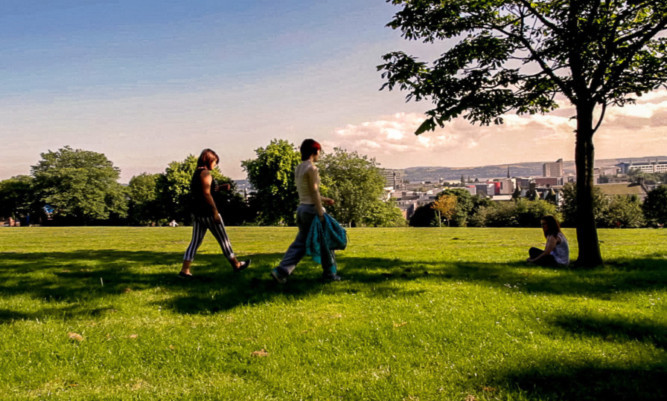The most famous love story ever told has been transformed into Dundonian, with a local cast and crew and filmed entirely in Dundee for less than £400.
Shakespeare’s Romeo and Juliet has been reworked by Dundee film-maker Glenn Millar, given a local flavour and a new title as well to reflect its new location.
Tambo and Juliet receives its premiere at DCA this week and has proved so popular it sold out within hours of the tickets going on sale last month.
Glenn said: “The 200 tickets sold out in 36 hours, they went on sale a month before the premiere and we could have sold it out three times, I think.
“So I’ve organised another showing at the Hannah MacLure Centre on June 1 and also at Generator on June 10 as part of Westfest. Both of those are free entry though.”
Auditions for Tambo and Juliet took place in April last year after an appeal through The Courier for budding actors to go along to the Deaf Hub and try out for the film.
Dozens of people applied and Glenn was amazed at the quality of some of them.
“The auditions were great, we wanted real Dundonians with thick Dundee accents to take part, and we actually got some really good people.
“I was absolutely thrilled with the quality, from aspiring young actors to some with no experience at all, including volunteer members of staff at the Deaf Hub.
“Matthew Reilly was one of them, he tried out and was a natural and he’s now the star, Tambo.
“His face was just right and he sounded totally natural and he was wonderful to work with, totally reliable and he put a lot of would-be actors to shame. Juliet is played by Melissa Paterson, she’s only 18 but she looks even younger, they both look really young.
“The whole filming process was a joy, it was nice to show off bits of Dundee too, being Dundee-centric I went out of my way to show the city off in a good light.
“Basically, we’ve stuck pretty faithfully to the plot, it’s the Leonardo di Caprio version in Dundonian.“
Tambo comes from Pentland and Juliet lives in the Hilltown, and most of the action goes on in Balgay Park, Dudhope Park, that line between both of them.”
Glenn shot to prominence in 2000 after blazing a trail through the Cannes Film Festival with his debut full-length movie, Godsend, which cost around £150 to make.
This time he estimates the cost to be a few hundred pounds, “probably no more than £400 and that was mostly hall hire and sandwiches for the crew, if you can’t pay people then at least you can feed them,” he says.
“After these showings we’ll send it off to a few festivals, then the DVD with the subtitles and then online and ultimately YouTube.
“The aim is as much about the project as the end product, it’s worthwhile, it brings people together, bringing new skills and new abilities.
“The point behind it is that, as usual, I’m always out to prove that you can produce an interesting piece of film work for almost nothing. The end product is not proportionate to the cost.”
